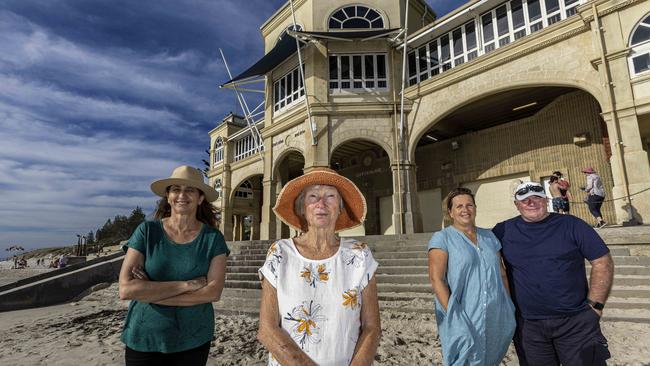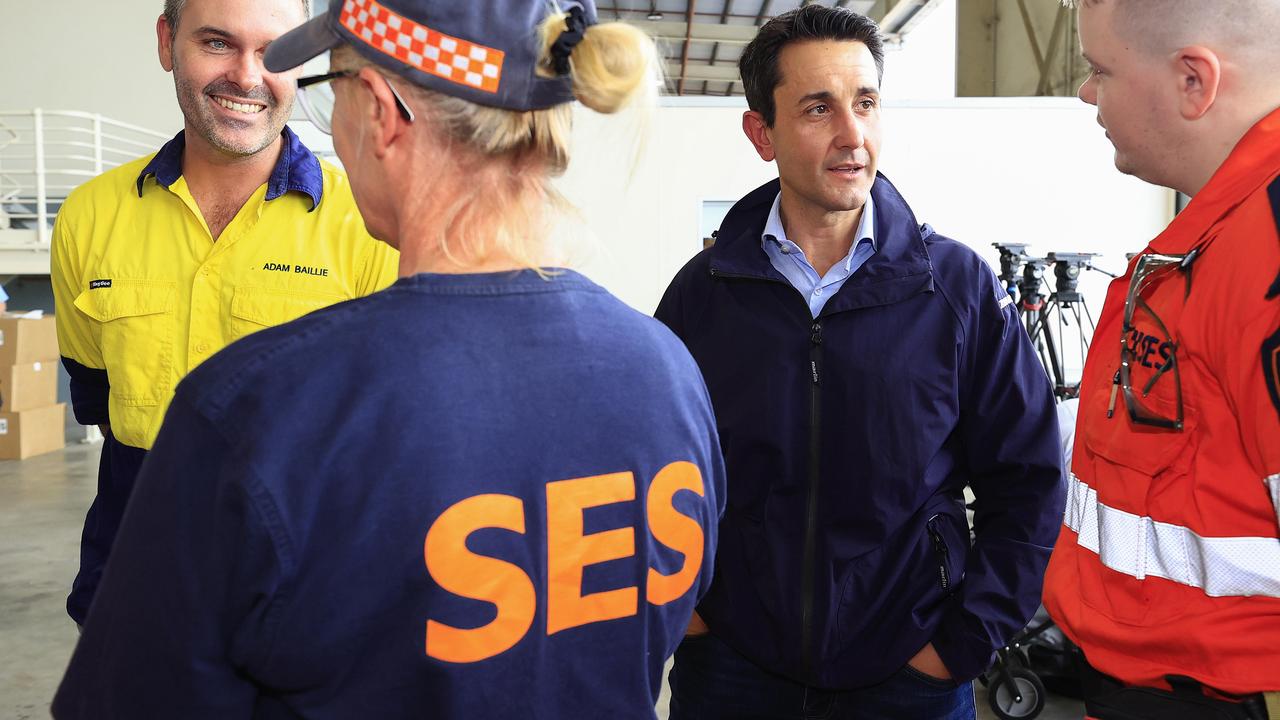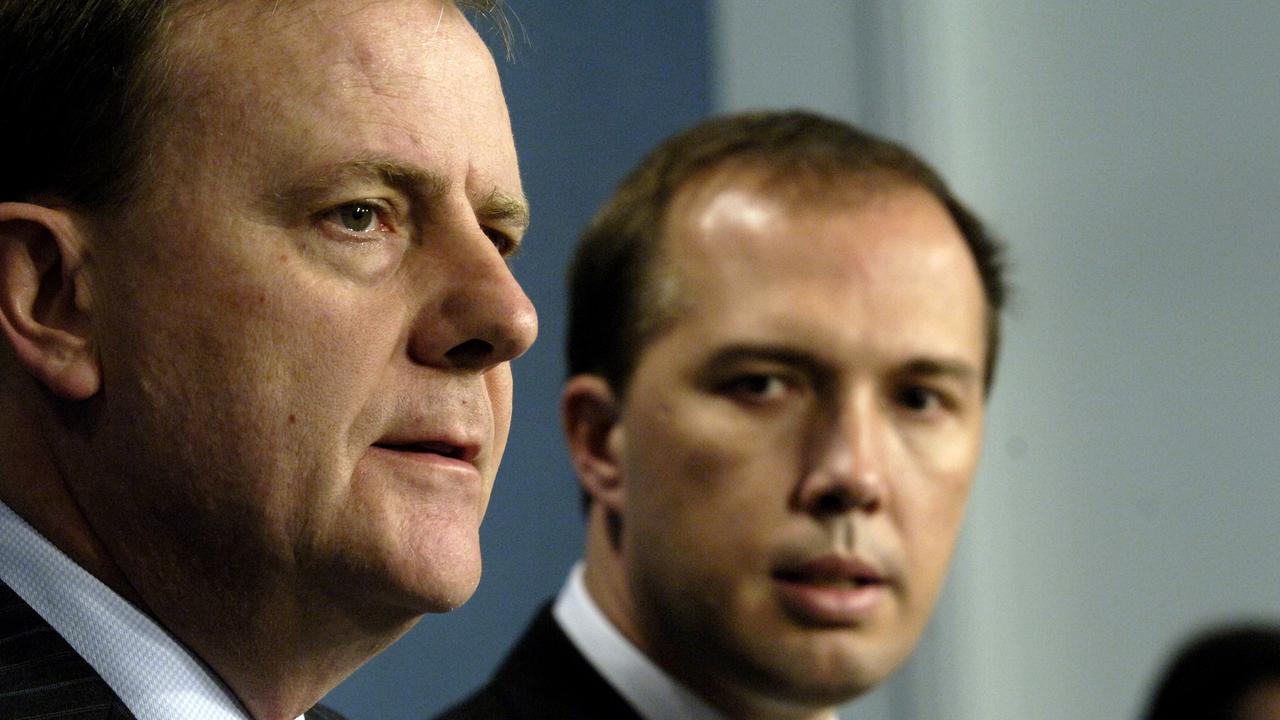Andrew Forrest’s Cottesloe tea house plans face uphill battle
Andrew Forrest has to convince the burghers of his notoriously anti-development home suburb of Cottesloe to support his overhaul of its most famous landmark.

Andrew Forrest smashed the Pilbara’s iron ore duopoly and is now working to cure cancer, end global slavery and solve climate change. But the iron ore billionaire may have encountered his most difficult challenge yet: convincing the burghers of his notoriously anti-development home suburb of Cottesloe to support his overhaul of its most famous landmark.
The plans by Mr Forrest’s private company Tattarang to modernise and expand Cottesloe’s Indiana Tea House – the beachfront structure that sits alongside Kings Park and Rottnest Island’s quokkas as the definitive postcard images of Perth – have mobilised the wealthy suburb’s well-drilled development opponents en masse.
The stoush over the plans for the site, and particularly the addition of a three-storey boutique hotel on top of the grass terraces behind the tea house, have highlighted not only the ongoing difficulties for developers in the area but also how Cottesloe’s shifting demographic trends are adding a new dimension to the debate.
Andrew and Nicola Forrest, who have lived in Cottesloe for years, took over the lease for the Indiana back in 2019, promising a revamp that would modernise a building that for all its Instagrammable qualities was falling into disrepair internally.
The Forrests ran a design competition, seeking public feedback for four radically different designs for the site, but realised that the public appetite to retain the existing facade was too strong to ignore. But the watered-down design now put forward by the group continues to face stringent grassroots opposition, with locals recently calling a special meeting of electors to express their concerns about the project to the local council. The council will consider a series of motions against the proposal this week.
The Cottesloe Residents and Ratepayers Association, which has been a thorn in the side of would-be developers for decades, is central to the opposition. The association’s chairman Greg Boland, a former Cottesloe councillor, says the proposal would swallow land that currently functions as public space and would breach current planning rules that prohibit new structures on the beach side of Cottesloe’s main drag, Marine Pde.
“This is such an important resource for the people of Perth and we want it to be preserved,” he said. “You wouldn’t let someone build a private hotel in Kings Park, even though it would be a lovely spot for one. Do you go and allow that just because someone comes along with a lot of money and some glossy brochures?”
The proposed development, he says, risks hurting what makes Cottesloe Beach so special.
“People really appreciate Cottesloe Beach as it is, as relatively undeveloped on that side of Marine Pde. That’s what has made it such a popular beach that people flock to all the time,” he said.
Among Cottesloe’s many prominent residents is former premier Colin Barnett, who held the seat of Cottesloe for the Liberal Party for 28 years.
He knows all too well the challenges of getting projects off the ground in Cottesloe, having become public enemy number one in the suburb when he tried to overhaul the planning process early in his first term as premier.
Despite his history pushing for more investment in Cottesloe, he told The Weekend Australian he did not believe the Forrests’ proposal was the right one for the site.
His chief concern is adding accommodation on the beach itself, something that Western Australia has always resisted right along its lengthy coastline.
“No one would object to a properly managed bar or licensed premises, but once you introduce accommodation on the beach you intrude into a public asset,” he said. “Once you do that, in my view the beach is likely to become almost a private area.”
But amid the well-organised opposition to the project are some noticeably younger voices of support.
Cottesloe has been the address of choice for the many professionals who had returned to WA from overseas as a result of the pandemic, and those younger, cashed-up types have a level of expectation that are not being met by the current crop of offerings along the Cottesloe coast.
Katrina Porter, who lives in an apartment just metres from the tea house, represented Australia in swimming at three Paralympics. Swimming at Cottesloe Beach is part of her daily routine, but she says she knows that the beach’s accessibility issues and lack of suitable changing facilities are a deterrent for others with disabilities.
“People get caught up in the idea that it’s going to be a Crown casino on the beach or it’s going to be a Gold Coast, but it’s not a high-rise development. It’s not going to be attracting thousands of guests staying every night, it’s a boutique hotel on the beach,” she said.



